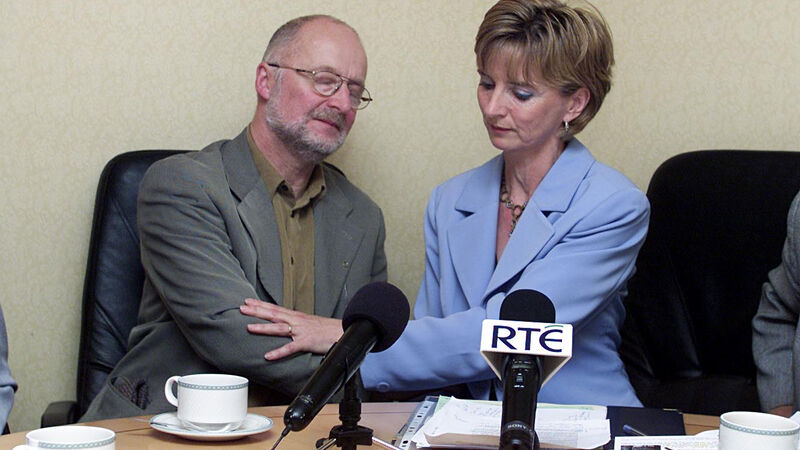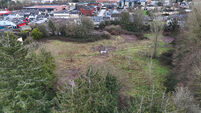Mick Clifford: The smear campaign that derailed Adi Roche's Áras bid

Dónal de Róiste and his sister Adi Roche. File Picture: Colin Keegan/Collins
The letters were anonymous, sent to many national media outlets. Some were followed up by phone calls. “Of course, you know the story with Adi Roche, her brother Dónal de Róiste, the whole damn family. Look it up. Do we want somebody so close to the Provos in the Áras?”
The smear campaign against Ms Roche’s presidential campaign in 1997 was vicious and entirely baseless. It was designed to do damage to her at a time when it looked as if she had genuine chance of winning the election. Somebody, somewhere decided her brother’s controversial, yet little-known theretofore, dismissal from the army 28 years previously would be the perfect weapon to smear her character.











